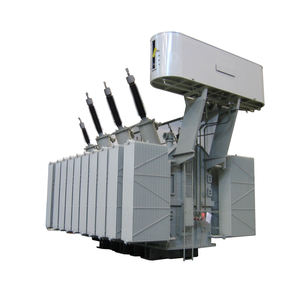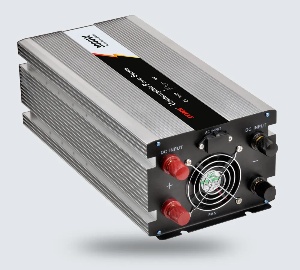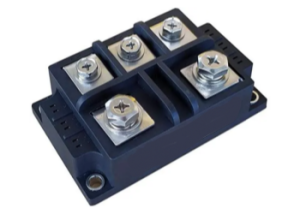Electronic Components Supplier | Transformers, Inductors, Inverters
Introduction
As renewable energy adoption surges worldwide, hybrid inverters are emerging as a game-changing technology for homes and businesses. These advanced devices combine solar power conversion, battery storage, and grid connectivity into a single intelligent system, offering energy independence and cost savings.
This article explores how hybrid inverters work, their benefits, key applications, and the latest innovations driving the market. Whether you’re a homeowner looking to reduce electricity bills or an energy professional seeking cutting-edge solutions, understanding hybrid inverters is essential in today’s evolving energy landscape.
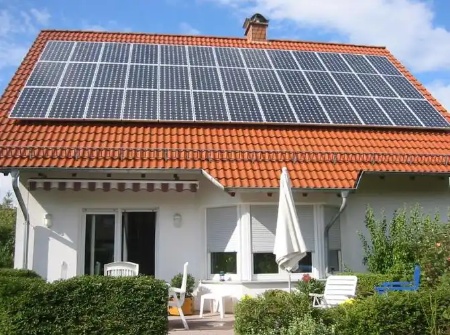
What is a Hybrid Inverter?
A hybrid inverter is a multi-functional power conversion device that:
✔ Converts DC power from solar panels into usable AC power for your home
✔ Charges and manages battery storage systems
✔ Seamlessly switches between grid power, solar, and battery backup
✔ Optimizes energy usage through smart energy management
Unlike traditional solar inverters, hybrid models integrate battery storage capabilities, making them ideal for off-grid, grid-tied, and backup power applications.
Key Benefits of Hybrid Inverters
1. Energy Independence & Resilience
- Backup power during outages (critical for areas with unreliable grids)
- Reduces reliance on utility companies by maximizing solar self-consumption
2. Cost Savings & ROI
- Lower electricity bills by storing excess solar energy instead of selling it back at low rates
- Avoids peak demand charges by using stored battery power during high-rate periods
3. Smart Energy Management
- AI-powered optimization prioritizes solar/battery usage based on weather, tariffs, and consumption patterns
- Remote monitoring & control via smartphone apps
4. Future-Proof Investment
- Scalable for battery expansion as energy needs grow
- Compatible with EV charging and smart home integration
Hybrid Inverter Applications
1. Residential Solar + Storage Systems
- Homeowners use hybrid inverters to maximize solar self-consumption and maintain power during blackouts.
2. Commercial & Industrial Energy Solutions
- Businesses reduce operational costs by managing peak demand and leveraging time-of-use tariffs.
3. Off-Grid & Remote Power Systems
- Essential for cabins, telecom towers, and rural electrification where grid access is limited.
4. Microgrids & Utility-Scale Storage
- Stabilizes renewable energy grids by balancing supply and demand fluctuations.
Latest Technological Innovations
1. High-Efficiency Topologies
- Transformerless designs (98%+ efficiency) reduce energy losses
- Bidirectional charging for V2G (Vehicle-to-Grid) applications
2. Advanced Battery Compatibility
- Works with lithium-ion, lead-acid, and next-gen batteries (e.g., solid-state)
- Dynamic voltage range supports diverse battery configurations
3. AI & Cloud-Based Energy Management
- Machine learning algorithms predict energy usage and optimize storage
- Grid services participation (frequency regulation, demand response)
4. Modular & Stackable Designs
- Easy capacity upgrades without replacing entire systems
- Fault-tolerant operation ensures reliability
Market Trends & Growth Projections
📈 The global hybrid inverter market is projected to grow at 12.7% CAGR (2024-2030), driven by:
✅ Rising electricity costs – Makes solar + storage more attractive
✅ Government incentives – Tax credits and net metering policies
✅ Increasing blackouts – Boosts demand for backup power solutions
✅ EV adoption – Creates synergy between home storage and EV charging
Leading markets:
- North America (U.S. ITC tax credit extensions)
- Europe (energy crisis accelerating solar adoption)
- Australia/Asia (high solar penetration + extreme weather events)
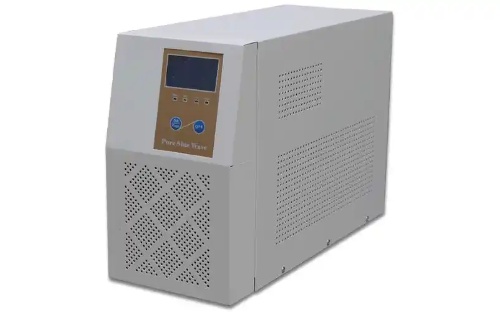
Choosing the Right Hybrid Inverter
When selecting a hybrid inverter, consider:
🔹 Power rating (match to your solar array and load requirements)
🔹 Battery compatibility (voltage range, chemistry support)
🔹 Grid interaction capabilities (zero-export vs. grid-assist modes)
🔹 Smart features (monitoring, firmware updates, grid services)
🔹 Warranty & reliability (look for 10+ year warranties)
Top Brands:
- SolarEdge
- Fronius
- Huawei
- GoodWe
- Victron Energy
Conclusion
Hybrid inverters represent the future of intelligent energy management, bridging the gap between solar generation, battery storage, and grid power. With advancements in AI optimization, battery tech, and modular designs, these systems are becoming more efficient and accessible than ever.
For homeowners, businesses, and utilities, investing in a quality hybrid inverter system delivers long-term savings, energy security, and sustainability benefits. As energy markets evolve, hybrid inverters will play a pivotal role in the global transition to renewable energy.


